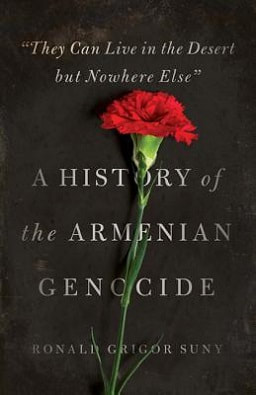|
They Can Live in the Desert but Nowhere Else
By Ronald Grigor Suny Published in 2015 518 Pages Thibault’s Score: 2/5 This book is awful, and I didn’t finish it. It starts off as a fairly standard academic account of the Armenian genocide. However, very quickly, problems start manifesting. First, it commits the crime of jumping around chaotically. The first few chapters haphazardly move from the history of the Ottoman Empire during WW1 to the medieval kingdoms of Armenian Cilicia then back to the early 19th century breakup of the Ottoman Empire. If I hadn’t spent much of the last year studying Ottoman, Byzantine, and Armenian history then I would have found it very hard to follow. However, the gravest crime which ultimately caused me to put the book down was committed several chapters later. Suny engages in what I can only characterize as victim blaming. He says that capitalism is ultimately to blame for the destruction of the Armenian people. He points out that the Armenians were a merchant people, which made them more successful when capitalism arrived in Turkey. As a result of their success, the Muslims found themselves left behind. He describes the genocide as “a class conflict which took on racial overtones.” Although the facts he discusses seem correct, the way he discusses them was absolutely repulsive. I interpreted his writings as subtly implying that the slaughter would have been justified if it had not crossed racial lines, and had been confined to a class conflict. Suny and I see the same facts, but have completely different interpretations. In the context of 20th century genocides, I often see minorities achieve success due to a combination of genetic and social factors. For example the Tutsi, Jews, and Armenians all had high-IQ, productivity driven, and pro-family lifestyles. This allowed them to outcompete their lower IQ, less productive, and less socially conservative peers. Similar patterns can be seen with the non-racialized slaughters of Stalin, Pol Pot, and Mao. Clever and successful people are persecuted by the dumbed down masses for being economically productive. In my worldview, the Armenians deserve better outcomes than the Turks because they are hardworking. If the tides of history change, and the Armenians become decadent while the Turks become more virtuous, then I would make the case that the Turks should become wealthier. I think that this worldview is fundamentally non-violent, because it sees disparities and hierarchy as natural rather than as problems that need to be corrected. Suny sees the Armenian success as problematic. He implies that if there had been socialism, the genocide wouldn’t have occurred, because the races would have been more equal. The way he made this point felt extremely disrespectful. Unintentionally, this book gave me some insight into some of the left-right conflicts that I saw when I visited Armenia and gathered from speaking to my Armenian friends. Stranger still, Suny is Armenian. This book made me reflect that Armenians with Dashnak sympathies are communists first, and Armenians second. Many communists, whether Jewish, Congolese, Chinese, or Arab often will make decisions that favor other communists rather than their historical ethnic kin. If the Armenians are the capitalists, then the Turks are at least partially justified for wanting to level the playing field. I don’t recommend reading this left-wing rag of a book. Instead, if you want to learn about the Armenian genocide, I would suggest The Great Catastrophe by Thomas de Waal.
0 Comments
Leave a Reply. |
Thibault SerletMost of my articles are book reviews, but I also write about many other topics. Archives
December 2023
Categories |

 RSS Feed
RSS Feed